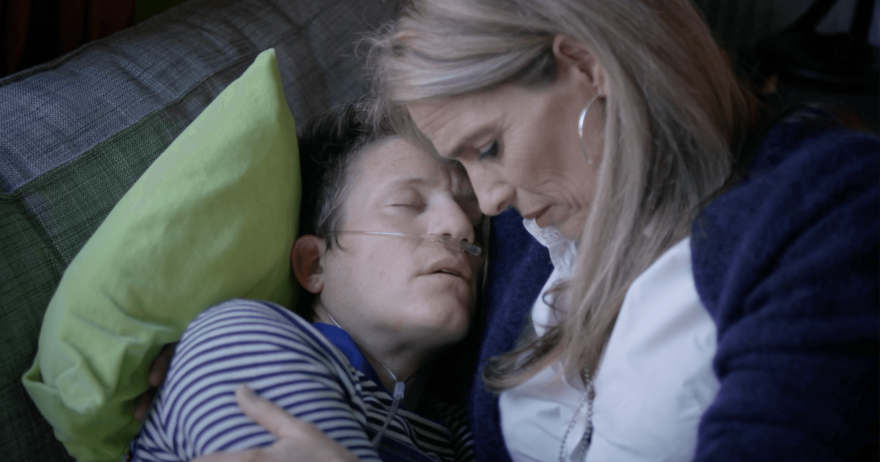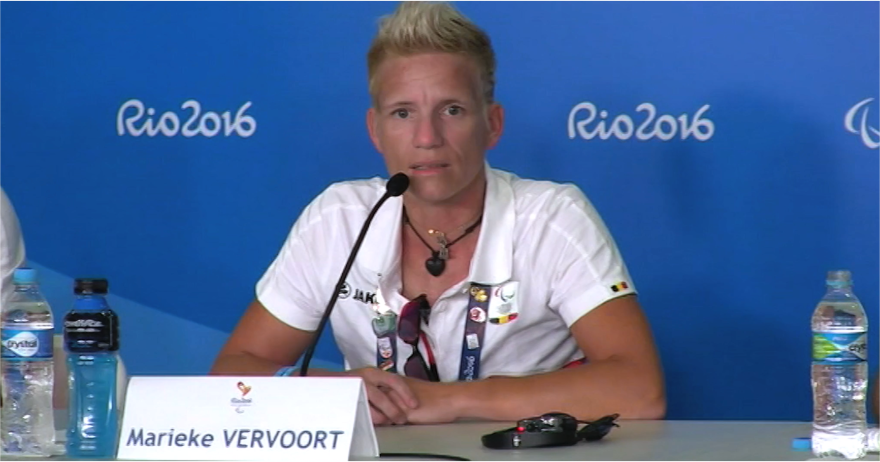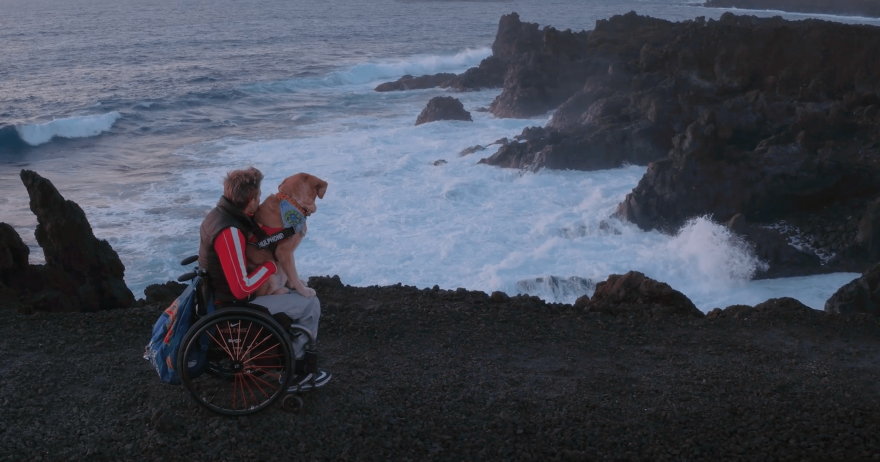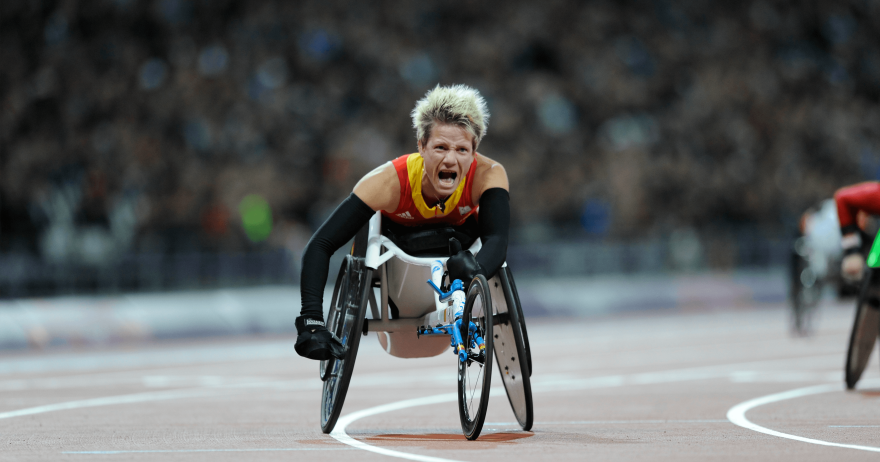"The right to die gave her the will to live." The tagline for the new documentary titled 'Marieke: Addicted to life' not only sums up its core message, but also the argument with which it hopes to encourage viewers to look at the existential and, at times, controversial debate about the right to die in a new way.
Belgian-born Marieke 'Wielemie' Vervoort, later known internationally as the 'Beast of Diest' (after the Flemish town where she lived) suffered from reflex sympathetic dystrophy, a rare degenerative muscle and spinal disease that left her increasingly paralysed and resulted in her needing a wheelchair from the age of 20.
This never slowed her down: Marieke made a name for herself in the world of sports, practising athletics, sail car racing and taking part in triathlons, later participating in the Paralympics twice, winning gold, silver and bronze medals.

A still of the film. Marieke nearing the end of her life as her illness takes hold with her mental coach and sports 'godmother' Lieve Bullens. Credit: Associate Directors
However, it was her decision in 2008 to take her life into her own hands and request euthanasia for which she later received worldwide attention, as the hellish pain she felt became increasingly unbearable.
Heroine of the right-to-die movement
The new feature documentary by US filmmaker Pola Rapaport, which received funding from the King Baudouin Foundation in line with its work on promoting best practices in end-of-life care and was first shown in Belgium as part of the Ostend Film Festival, follows Marieke in her final three years.
For the documentary, Rapaport gained exclusive access to Marieke's private life, as well as her close family and friends, and other key people in her life like her personal physician, Dr Wim Distelmans, Chair of the Federal Euthanasia Commission of Belgium, a key figure in the health debate in the country and abroad.
While the story focuses on Marieke, it also centres on the issues around legal medically-assisted death, a controversial procedure that is forbidden by law in most other countries.
In the film, the Belgian sportswoman repeatedly argues that, once she had legal permission to end her life, she felt liberated. With her renewed strength to face her future and make the most of her remaining years, she re-discovered the thrill of living and of competition, resulting in her living for another decade after first requesting euthanasia.
"The film portrays this paradox of choosing to die and how this actually gives life. This also makes the film relevant to audiences globally, on a philosophical but also human level, making this an international, not a local story," Rapaport noted during the film's première in Kinepolis, Brussels, on Tuesday night.

A still of the film. at the Rio Paralympic Games in 2016, Marieke gives her impassioned speech. Credit: Associate Directors
She soon became a world champion in wheelchair racing, for which she won a Gold medal at the Rio Paralympics in 2016. During an impassioned public statement following her victory, she called on all nations to give their citizens the right to choose how to die. Almost overnight, she was catapulted into the limelight, and Marieke soon became the new face of the right-to-die movement.
Throughout the documentary, Marieke's spirit continues to soar, as she fills her life with adrenaline and adventure, international travel, intense competition and an extraordinarily physical bucket list, including indoor skydiving, bungee-jumping and a race on the Zolder circuit in a Lamborghini.
Traditions and controversies
But the documentary also shows intimate glimpses of Marieke's fragility and her struggle with her illness and the freedom of choosing when she'd had enough, while shining a light on the challenge of helping friends and family understand and accept her decision at the centre of a political, legal and religious debate that challenges traditional beliefs about what it means to live and to die.
Just nine countries, and ten states in the United States (and the District of Columbia), permit (a form of) medical aid-in-dying. Belgium passed a law in 2002 that requires lengthy medical and psychological tests before permitting those enduring intolerable suffering to terminate their lives with the help of doctors.

A still from the film. Credit: Associate Directors
In recent years, LEIF, a Belgian organisation initiative of people and associations striving for a dignified end of life for all, called for the law to be extended so people suffering from dementia who have become incapacitated can also get euthanasia. Under the current euthanasia law, patients are only eligible if they are fully conscious and capable of stating their will, meaning people who are at a later stage of the illness can no longer request this procedure.
Related News
- Fewer people underwent euthanasia during pandemic
- Constitutional Court voids Belgium's euthanasia law
Despite the challenging moments, Marieke argues that Belgium's right-to-die legislation gave her the will to live life to the fullest for as long as it was possible. It was this choice, and her final acceptance of death, that became an affirmation of her life.
“I had my own life under control. And look, I’m still here. You’re always doing more and more because you’ve got your own life in your hands. You can say when it’s enough." A few months after her 40th birthday, in October 2019, Marieke underwent euthanasia at home, after taking time to say goodbye to her loved ones.
The documentary will be screened in Belgian cinemas from 1 February.

